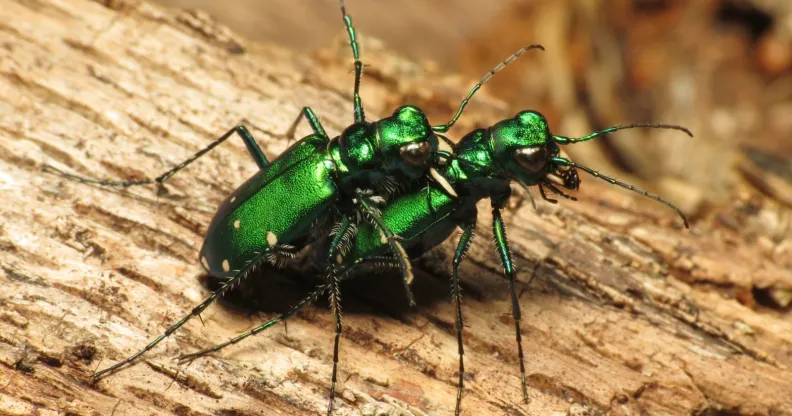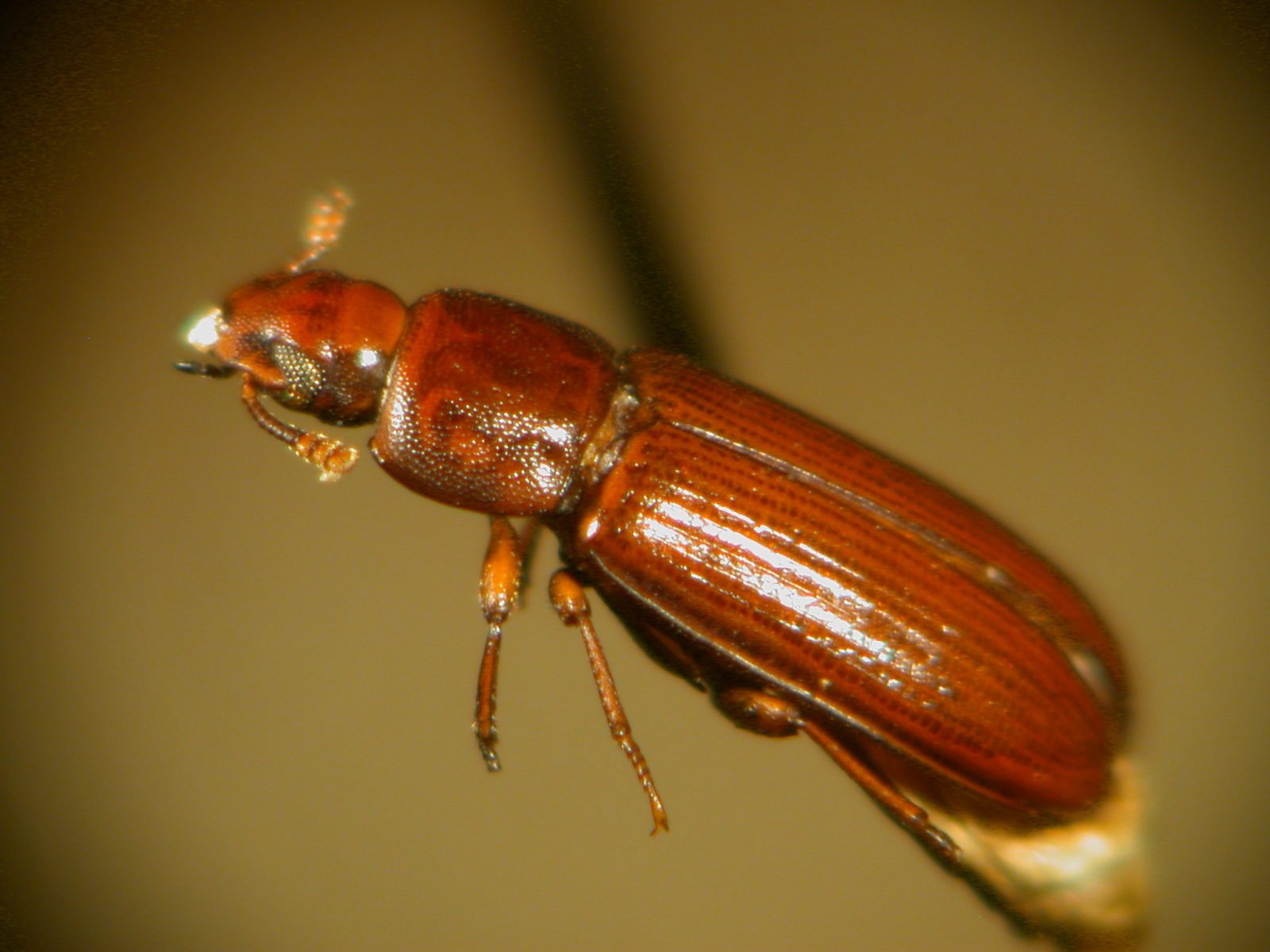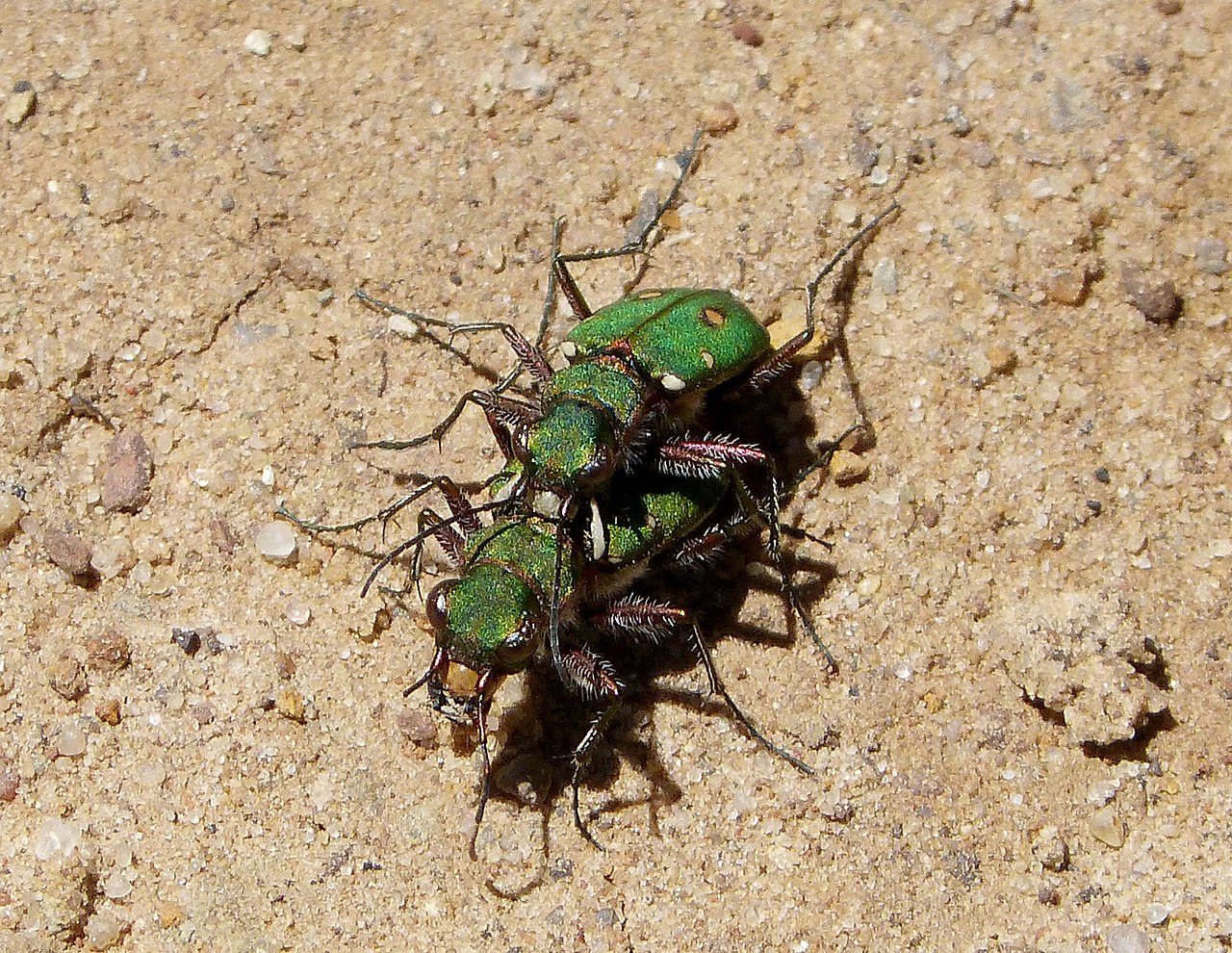Male beetles have gay sex because of incompetence, not sexuality, study finds

Two beetles having sex (Wikimedia Commons)
Male beetles have sex with other male beetles because of their own “incompetence” rather than their sexuality, a new study has found.
The new research by the University of East Anglia concluded that, when male beetles are bred in mostly female populations, they are more likely to have sex with other males simply because they can’t distinguish between the sexes.
The researchers, who applied their thinking to insects as a whole, found that “same-sex mating behaviour amongst male insects is much more likely to be due to incompetence, than sexual preference, male-male competition or evolutionary motivation.”
In the experiment, six populations of red flour beetles were bred under male-biased or female-biased sex ratios and maintained for 80 to 100 generations.
The researchers then took male beetles out of the populations and gave them the choice of having sex with either a female or a male.
They discovered that male beetles that had come from mainly male populations were more likely to mount female beetles and spend a longer amount of time having sex with them.

The red flour beetle (Wikimedia Commons)
But, for male beetles that had come from mostly-female populations, the study found that they were “just as likely to mount a male partner as a female one and seemed to exhibit random choice over the sex of their partner.”
Kris Sales, a PhD researcher at UEA, who led the research, said: “In the male-biased lines we found the male beetles were much more competitive at finding females and mating them efficiently.
“In the female-biased lines, it’s highly likely that a male mating randomly will actually mate with a female and therefore produce offspring. In these lines it looks as though males have lost their abilities to discriminate between male and female mates.”
The university added that male beetles have sex with other male beetles because they are “simply inept.”

Two beetles having sex (Wikimedia Commons)
The researchers were keen to stress that, although the research shines a light on “an interesting paradox in the insect world,” it does not “reveal much” about sexual behaviour in humans and other mammals.
Sales added: “These results cannot be generalised to explain the behaviours of animals with more complex cognitive function and social structures like birds and mammals, which are likely to have very different reasons for same-sex mating.”
According to the university, more than 100 species of insects engage in same-sex mating behaviour – and in some of these species gay sex is more common than heterosexual mating.

A lesbian penguin couple
Outside the insect realm, the lives of LGBTQ+ animals are becoming increasingly well-known, from a lesbian penguin couple raising a chick to rumours that the world’s oldest tortoise is gay.
The full results of the study were published in the journal Animal Behaviour.

